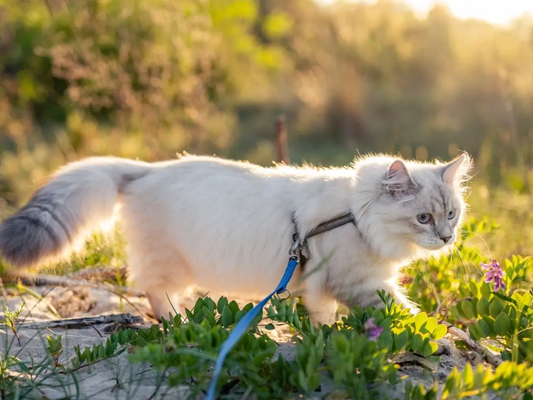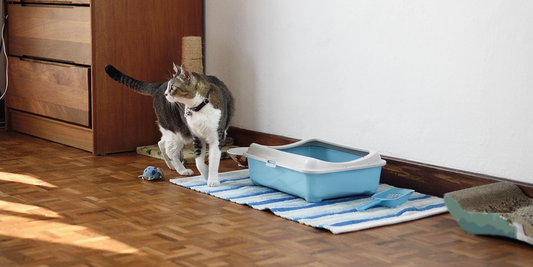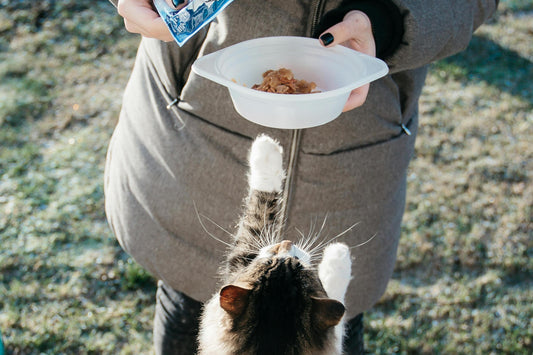Introduction
Cats are enigmatic creatures, and their peculiar behaviors can leave us scratching our heads. One area where their eccentricities often shine through is the litter box. In this article, we'll explore 8 Weird Cat Litter Box Habits that might baffle you, and provide insights into what they signify. Understanding these habits can help you better care for your feline friend.
1. Digging to China: Excessive Digging
Cats are known for their fastidious nature when it comes to covering their waste. However, if your cat seems to dig like they're on a mission to reach China, it could signal an underlying issue. This behavior might indicate discomfort, pain, or an aversion to the litter. Consult your vet to rule out any medical problems.
2. Litter Box Olympics: High Jumping
Does your cat perform acrobatics in the litter box, leaping in and out with flair? While this can be entertaining to watch, it may suggest your cat is anxious or trying to avoid touching the litter. Ensure the box is spacious enough and the litter is comfortable for your cat's paws.
3. The Picky Pooper: Selective Litter Aversion
Some cats develop a preference for a particular type of litter and will avoid using anything else. If your cat refuses to use a new brand or type of litter, it's best to respect their choice. Gradually transition them to the new litter to avoid disruptions.
4. Nighttime Diggers: Midnight Excavation
If your feline friend suddenly becomes a nighttime archaeologist, it might be due to boredom or excess energy. Ensure your cat gets plenty of playtime during the day to curb this behavior. Additionally, consider a covered litter box to contain the mess.
5. Litter Flinging: Scatter Queen/King
Is your cat a litter flinger, leaving a trail of granules around the box? This habit is often attributed to your cat's natural instinct to bury their waste deeply. Switch to a heavier, clumping litter to minimize scatter and make cleanup easier.
6. Protest Peeing: Outside the Box
Finding cat urine outside the litter box can be frustrating. This behavior may indicate a medical issue, territorial marking, or litter box aversion. Consult your vet to rule out any health concerns and ensure the box is kept clean and in a quiet, accessible location.
7. Litter Box Chatter: Vocalizing During Use
Some cats can't help but voice their opinions while using the litter box. While this behavior is generally harmless, it can be startling. Consider placing the litter box in a quieter area to minimize the commotion.
8. The Phantom Pooper: Mysterious Unmarked Territory
If your cat occasionally leaves waste uncovered in the box, it may be a sign of confidence or a lack of concern about potential predators. However, frequent instances could indicate litter box aversion. Experiment with different litters to see if your cat prefers a specific type.
8 Weird Cat Litter Box Habits
Now that we've explored these intriguing litter box habits, remember that understanding your cat's unique behavior is crucial to maintaining their well-being and happiness. Always consult your vet if you suspect any underlying health issues, and ensure your cat's litter box is clean and inviting.
Frequently Asked Questions
Q: Why does my cat dig excessively in the litter box?
A: Excessive digging can signal discomfort or an aversion to the litter. Consult your vet for a proper evaluation.
Q: How can I stop my cat from flinging litter everywhere?
A: Switch to a heavier, clumping litter to minimize litter scatter.
Q: What should I do if my cat starts peeing outside the litter box?
A: Consult your vet to rule out medical issues and maintain a clean, accessible litter box.
Q: Is it normal for cats to vocalize while using the litter box?
A: While it's generally harmless, consider placing the litter box in a quieter area to reduce noise.
Q: Can I train my cat to use a different type of litter?
A: You can gradually transition your cat to a new litter type, but respect their preferences.
Q: How can I prevent my cat from selective litter aversion?
A: Respect your cat's litter preferences and make gradual transitions to new brands or types.
Conclusion
Understanding your cat's peculiar litter box habits can help you build a stronger bond with your feline friend and ensure their well-being. By addressing these behaviors with patience and care, you can provide a comfortable and clean environment for your beloved pet.








